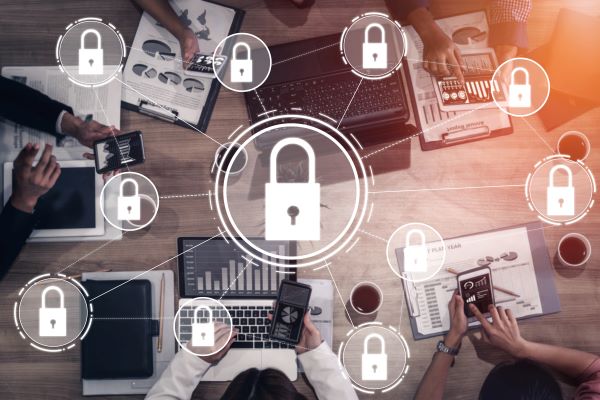
Are You Storing Financial and Legacy Information Safely?
It is critical to store your will, living wills, powers of attorney, trusts, medical directives, financial information, and any other estate planning documents securely. It also needs to be stored somewhere your survivors can easily access. Other information that should be securely stored includes birth certificates, marriage licenses, even divorce decrees, as well as medical records and property titles. In your project, include recurring bills, digital assets, including computers, devices, social media, online storefronts, and smartphone passwords, which you want to keep accessible for your survivors.
Many people are attempting to become as paperless as possible and storing the data onto memory sticks or an external hard drive. Still, others are opting to use online data storage services that keep this information in the cloud. There are still those individuals who prefer maintaining this information themselves, in their homes, and a copy in a safe deposit box.
How you choose to store your relevant data is indicative of the amount of labor and time you are willing to invest in creating and maintaining your information system. Going paperless is generally the most convenient, safe, and quickest. After all, much of our information is already in an online format.
But the online option precludes a trusted person from finding clues about your assets’ locations, what bills need payment continuation and what services to close out. LA Times finance columnist Liz Weston quotes a friend regarding organizing your data, “Your frequent flier miles could disappear while your Netflix subscription continues indefinitely.”
Your list depends on the complexity of your circumstances and the age at which you die. An individual lost to a family in their early forties probably has more moving parts and information reflecting their daily life than someone in their eighties who has likely been downsizing and simplifying their life. Changes in circumstances are an illustration of the importance of updating your information because of life changes.
How to Safely Store and Share Your Digital Information
Some of your organizing will include creating digital copies of important documents like social security cards, birth certificates, passports, marriage, and driver’s licenses. Scanning these documents does not make them a legal copy; however, it will be easier to replace lost or stolen documents if you have a copy. It also puts the information in an easily accessible format rather than rummaging through your home to find the document. Of course, the original documents need to be in a fireproof safe or a bank deposit box, while others can be solely in digital form. For a list of hard copy documents and how long you might keep them, look here.
If you are not comfortable using digital devices, ask someone in your family who can help you set up your digital file system and show you the basics. Your documents can travel with you wherever you go, and you can also share this information with others.
Online storage possibilities are many, but the most popular options are Microsoft OneDrive, Google Drive, and Apple iCloud. These services already offer free limited storage in the cloud, and you can purchase an upgrade for additional storage capability.
If you prefer storing documents locally on a physical storage device, you must include a backup plan and run it regularly to keep your information up to date. A Windows 10 computer permits scheduling backups automatically using Windows File History. Simply type <backup> in the search bar and select <Backup Options> from the results. You can also find this location by right mouse clicking Start>Settings>Update & Security>Backup. If you use a Mac, there is also an auto-backup feature. Read about Apple’s Time Machine to back up your files here. This URL explains other methods to employ when backing up and restoring files.
You can also purchase an external USB hard drive for file backups. Look for a 1 or 2 TB drive that can house all of your information and updates quickly. Smaller USB memory sticks also work but are typically limited to 256GB of information, which can be enough for your needs and transport easily if you travel and want to keep your information at hand. These backup methods should have an extra drive to store identical information in a fireproof safe or a bank deposit box.
The truth is safely storing your financial and other valuable personal data is often a combination of these methods and information types. For your loved one to access financial records, they require your personal information such as usernames, passwords, and social security numbers, in addition to account numbers and online site URLs.
If you feel unsure about your ability to organize and safely store this critical data cohesively, talk with an accountant, attorney, or other trusted advisor to create a structure to implement before copying and scanning data. Everplans is an online service that allows you to store your information in their format for a fee or can provide a starting point to understand the scope of this type of project. Do your research first, and then implement your strategy for best results.
We hope you found this article helpful. If you have questions or would like to discuss a personal legal matter, don’t hesitate to reach out. Please contact our Wichita office at 316-830-5603.

